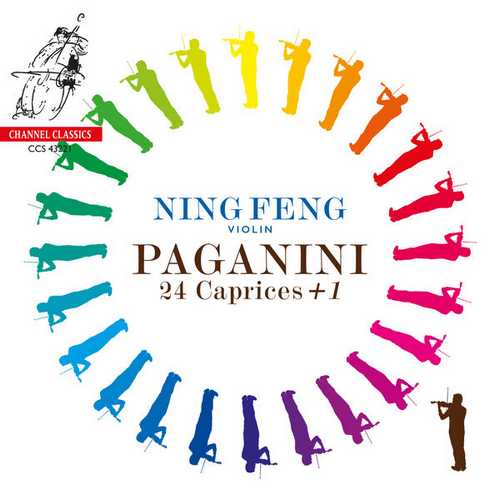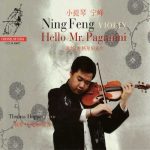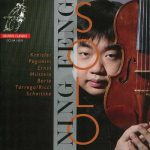

Composer: Niccolò Paganini
Performer: Ning Feng
Format: FLAC (tracks)
Label: Channel Classics
Catalogue: CCS43221
Release: 2021
Size: 2.65 GB
Recovery: +3%
Scan: yes
24 Caprices, Op. 1
01. Caprice No. 1 in E Major: Andante
02. Caprice No. 2 in B Minor: Moderato
03. Caprice No. 3 in E Minor: Sostenuto – Presto – Sostenuto
04. Caprice No. 4 in C Minor: Maestoso
05. Caprice No. 5 in A Minor: Agitato
06. Caprice No. 6 in G Minor: Agitato
07. Caprice No. 7 in A Minor: Posato
08. Caprice No. 8 in E-Flat Major: Maestoso
09. Caprice No. 9 in E Major: Allegretto
10. Caprice No. 10 in G Minor: Vivace
11. Caprice No. 11 in C Major: Andante – Presto – Andante
12. Caprice No. 12 in A-Flat Major: Allegro
13. Caprice No. 13 in B-Flat Major: Allegro
14. Caprice No. 14 in E-Flat Major: Moderato
15. Caprice No. 15 in E Minor: Posato
16. Caprice No. 16 in G Minor: Presto
17. Caprice No. 17 in E-Flat Major: Sostenuto – Andante
18. Caprice No. 18 in C Major: Corrente – Allegro
19. Caprice No.1 9 in E-Flat Major: Lento – Allegro assai
20. Caprice No. 20 in D Major: Allegretto
21. Caprice No. 21 in A Major: Amoroso – Presto
22. Caprice No. 22 in F major: Marcato
23. Caprice No. 23 in E-Flat Major: Posato – Minore – Posato
24. Caprice No. 24 in A Minor: Tema quasi presto – Variazioni – Finale
25. Caprice d’Adieu in E Major: Allegro moderato
Paganini’s success as a violin virtuoso was naturally only partly based on the fantastical, mysterious and demonic atmosphere that surrounded him. What his professional admirers captivated most of all was his unparalleled playing technique. The best impression of his musical and technical accomplishment can be gained from his most talkedabout work, the 24 Caprices opus 1 (1817), which were modelled on the similarly named pieces by Pietro Locatelli (1733). To this day the 24 Caprices are still considered the bible of violin technique. Ning Feng, First Prize winner at the 2006 International Violin Competition Premio Paganini, gives us a fresh take on his 2017 Samuel Zygmuntowicz violin, and concludes the program with the remarkable Caprice d’Adieu.
On one hand, it’s a testament to the modern tuition of violin technique that Paganini’s 24 Caprices are widely played. In his time, they were outlandish enough to inspire various demonic legends recounted in the booklet of this Channel Classics release, including the delightful tale that Paganini strangled his wife and used her intestines to make one of his violin strings, the one that produced the sweetest tone. On the other hand, there are still differences among the available performances. They are not exercises producing a monolithic group. The more arcane details of the caprices may emerge with greater or lesser clarity, and the expressive dimension of the caprices may vary. Violinist Ning Feng, a Paganini specialist who has been at it for some years now, has every detail in place. It would be irrational to try to list every one but listen to the Caprice No. 3 in E minor and its delicately weighted little octave trills. Feng has sometimes been charged with mechanical playing, but it’s not really true. Balancing the fantastically difficult elements in these pieces requires musicality, which Feng provides. However, he could deliver more warmth and charisma in the purely melodic passages, such as the aria-like amoroso opening of the Caprice No. 21 in A major; these were an important part of Paganini’s appeal, and it’s impossible to believe he didn’t ham them up a bit. Still, for violinists especially, there is much to learn here. Channel Classics deploys various high-tech devices in the engineering, but none of it can make up for the fact that the church ambiance robs the music of intimacy and bears little resemblance to the places where it was played by Paganini.



